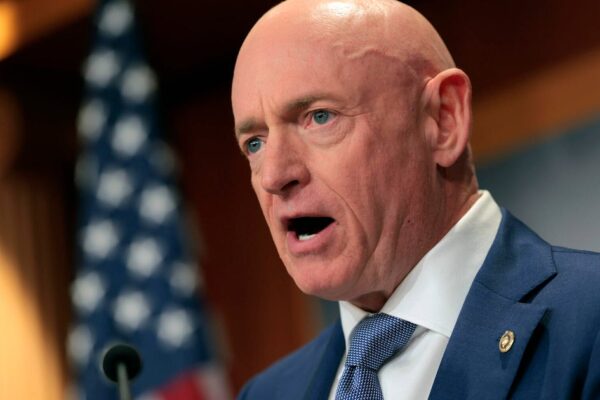
The rise of party parity: Why compromise is dead in today’s politics
MARBLEHEAD, Mass He helped supply the Continental Army during the early days of the American Revolution. He signed the Declaration of Independence. He shaped the Constitution and the Bill of Rights. He was a member of the House of Representatives, a governor of Massachusetts and vice president. He lent his name — perhaps the most mispronounced name in American history, even more so than Kamala — to the creative shaping of a congressional district we now call “gerrymandering.” Elbridge Gerry (pronounce it with a hard “G,” like “garden”) was perhaps the most famous native of this historic seafaring town, and gerrymandering (I have spent decades as an editor and columnist failing to persuade a single soul to pronounce that word with a hard “G”) is once again at the heart of American politics. Even so, the districts being crafted in Texas, where they are drawn to favor Republicans, and California, where the same scurrilous activity is being employed to the advantage of Democrats, lack the artistry of the original gerrymander, which won its name because the district here on the seacoast north of Boston looked remarkably like a salamander. These maneuvers, and in Gerry’s case this virtuosity, come in service of an element of American politics that the old political warrior — who died in the role of vice president in 1814 — didn’t foresee when, having been a major voice at the Constitutional Convention but concerned the document wasn’t sufficiently protective of individual liberties, declined to support the final product. The founding document of the American government does not mention political parties. And yet, today’s political strife grows directly out of the changes in the country’s two political parties, which are careering in opposite directions — the Republicans fiercely to the right, the Democrats equally aggressively to the left. If William Butler Yeats were a political scientist, he would say that the center cannot hold because there is no center anymore. So it is left to two political scientists, David W. Brady and Brett Parker of Stanford University, to explain to us why, as Yeats surely would have written had he been observing American politics in this fraught time, “Mere anarchy is loosed upon the political world.” In “From Dominance to Parity: America’s Political Parties and the New Era of Electoral Instability,” published this fall, the two experts argue that the nation has “moved from a state of party hegemony — the prevailing political environment in the United States in 1937 — to the current era of party parity and its attendant problems.” Or how, to quote a different poet from the British Isles, Matthew Arnold, “we are here as on a darkling plain/Swept with confused alarms of struggle and flight,/Where ignorant armies clash by night.” Brady and Parker take us from the growth of Democratic power in and after the New Deal to the partial realignment in the 1980s, and from the creeping movement to the Republican Party and to today’s political parity. “Unlike the extended midcentury period of Democratic dominance,” they write, “control of Congress and the presidency has seesawed between the two major parties since the early 1990s with neither achieving a consistent advantage over the other.” The result: the emergence of two ideologically consistent parties in a death struggle leading to an impasse where there is little practice in, or inclination toward, compromise. When, more than two centuries ago, the delegates to the Constitutional Convention were themselves at an impasse — in this case, over whether the states would be represented equally in the new Senate — Gerry pleaded for compromise, arguing, “We must make concessions on both sides” because “accommodation is absolutely necessary, and defects may be amended by a future convention.” The last time a major American figure made such an argument was in 1990, when President George H. W. Bush agreed to a compromise that raised taxes to tame the budget deficit. Two years later, he was defeated for reelection. It was in that period when party loyalty, until then a sometime thing, became entrenched. Since 1990, there’s been only one election in which a majority of voters did not support their party’s nominee. Split-ticket voting of the sort that allowed, for example, Massachusetts in 1970 to give Republican Gov. Francis Sargent a second term while Democratic Sen. Edward M. Kennedy won reelection was dying if not dead. The two political scientists point out that no longer do more than 20% of Republicans vote for a Democratic House candidate and a GOP presidential candidate, as they did between 1980 and 1992. In the 2012 and 2020 elections, that figure fell as low as 7%. At the same time, as divisions in American politics grew larger, the margins between the two parties grew smaller. Presidents routinely have become elected with lower numbers of Electoral College votes than their predecessors. Presidential blowouts, the two write, have “gone the way of the liberal Republican.” There are no liberal Republicans in Donald Trump’s Republican Party. It has become a commonplace to say that not only Nelson Rockefeller, the liberal governor of New York (1959-1973) and then vice president (1974-1977), would not fit in today’s GOP, but also that the two-term President Ronald Reagan (1981-1989) would feel as if he were an outsider in a party he once made over in his image the way Trump has done in his. Then again, many blue-collar voters who would have been comfortable in the old Democratic Party now are attracted to the Trump Republican Party. At the same time, more affluent whites and college graduates were moving to the Democratic Party. “In contemporary American politics, neither party can assume its power will last past the next election,” they write. “While Republicans have unified governments right now, they can’t rest easy knowing the next (likely short-lived) Democratic majority is just around the corner. And so it goes in the party-parity era.” Back to Gerry. For 82 years, from 1887 to 1969, his home congressional district was represented by a Republican, more than a third of that period by one family: George G. Bates and William H. Bates. When the younger Bates died, state Rep. Michael J. Harrington broke the trend and was elected as an insurgent Democrat. Today, he owns the Hawthorne Hotel in Salem. In the lobby of the historic hostelry is a gigantic, framed picture. It is of the original gerrymander. And so it goes. David M. Shribman is the former executive editor of the Pittsburgh Post-Gazette.
https://www.darnews.com/opinion/the-rise-of-party-parity-why-compromise-is-dead-in-todays-politics-88e8f081
You may also like
相关资源
You may be interested
Globe bets on prepaid fiber, sets expansion
No content was provided to convert. Please provide the text...
Bragging rights up as Samal makes 5150 debut
A stellar Open division field will be shooting for the...
DigiPlus launches P1-M surety bond program
MANILA, Philippines — DigiPlus Interactive Corp. has partnered with Philippine...
 The New York Times
The New York Times
- How a Close Associate of Epstein’s Found Career Redemption in Japan 2026 年 2 月 26 日 River Akira Davis and Hisako Ueno
- The Trumpiest Trump We’ve Ever Beheld 2026 年 2 月 26 日 Frank Bruni and Bret Stephens
- Prime Minister Mette Frederiksen Calls Snap Elections in Denmark 2026 年 2 月 26 日 Amelia Nierenberg and Regin Winther Poulsen
- Denver Mayor Bars ICE from City Property and Orders Protection for Protesters 2026 年 2 月 26 日 Jack Healy
- In Texas, Crenshaw faces primary challenger, a test for MAGA 2026 年 2 月 26 日 Tim Balk and J. David Goodman
- Justice Dept. Mistakenly Exposed Cooperating Witnesses in Epstein Files 2026 年 2 月 26 日 Jonah E. Bromwich and William K. Rashbaum
- U.S. Mortgage Rates Fall Below 6% for First Time in Years 2026 年 2 月 26 日 Gregory Schmidt
- World Economic Forum Chief Resigns Over Epstein Ties 2026 年 2 月 26 日 Amelia Nierenberg
- Why Are So Many Democrats Running for California Governor? 2026 年 2 月 26 日 Laurel Rosenhall
- Bird Losses Are Accelerating, New Study Finds 2026 年 2 月 26 日 Catrin Einhorn



Leave a Reply